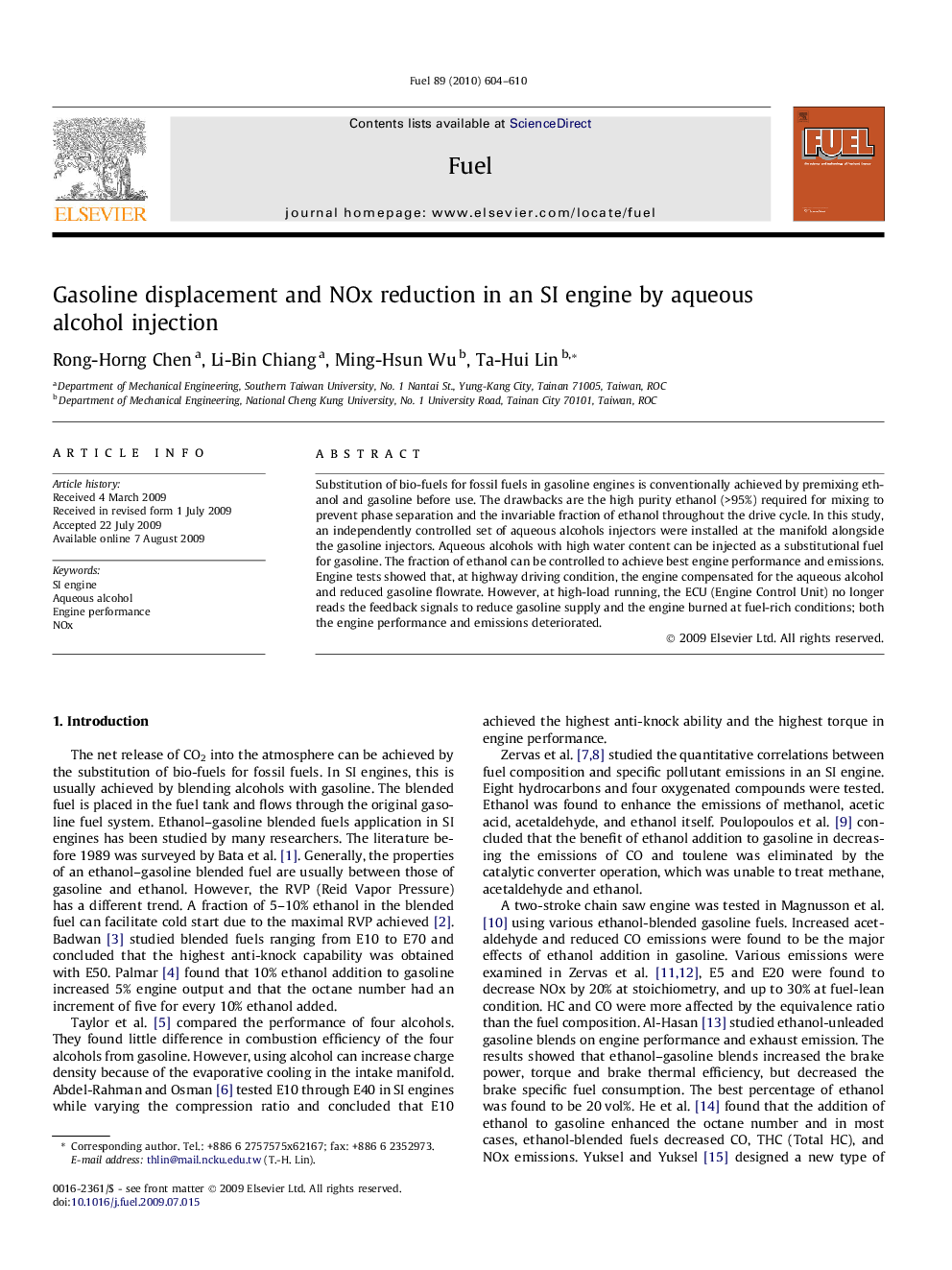| Article ID | Journal | Published Year | Pages | File Type |
|---|---|---|---|---|
| 207673 | Fuel | 2010 | 7 Pages |
Substitution of bio-fuels for fossil fuels in gasoline engines is conventionally achieved by premixing ethanol and gasoline before use. The drawbacks are the high purity ethanol (>95%) required for mixing to prevent phase separation and the invariable fraction of ethanol throughout the drive cycle. In this study, an independently controlled set of aqueous alcohols injectors were installed at the manifold alongside the gasoline injectors. Aqueous alcohols with high water content can be injected as a substitutional fuel for gasoline. The fraction of ethanol can be controlled to achieve best engine performance and emissions. Engine tests showed that, at highway driving condition, the engine compensated for the aqueous alcohol and reduced gasoline flowrate. However, at high-load running, the ECU (Engine Control Unit) no longer reads the feedback signals to reduce gasoline supply and the engine burned at fuel-rich conditions; both the engine performance and emissions deteriorated.
